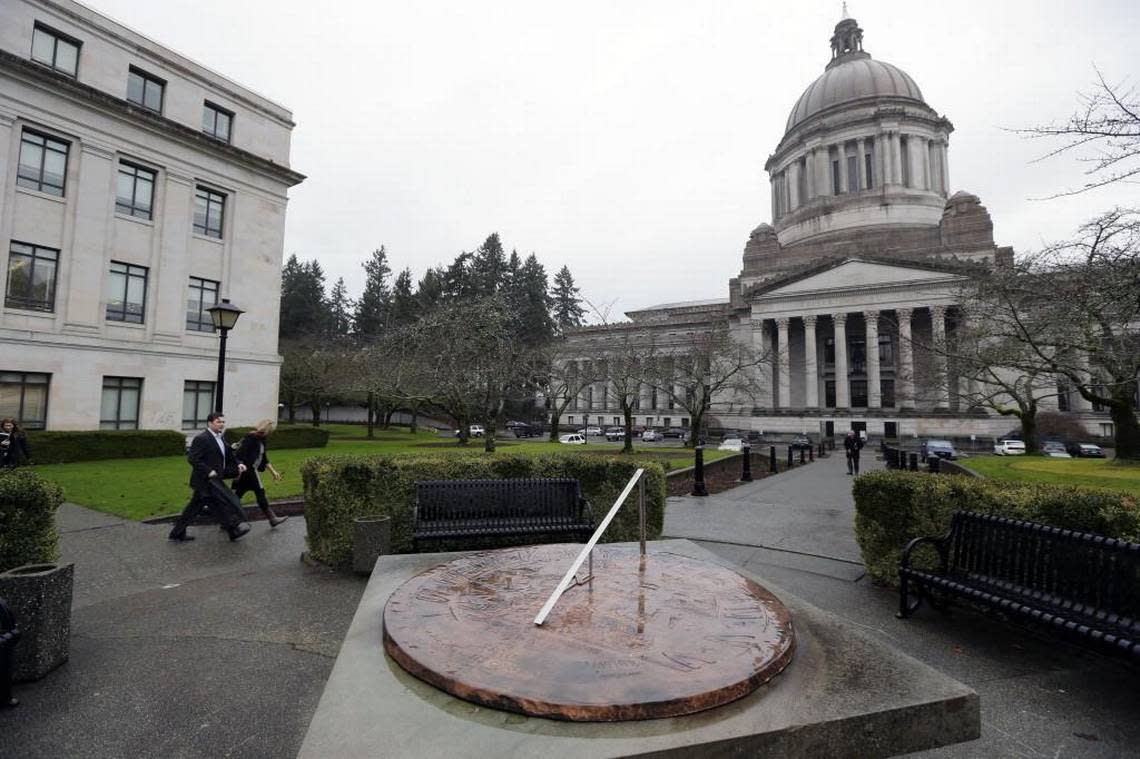Senate unveils $1.3 billion supplemental capital budget plan focused on schools, housing

Senate leaders released their $1.3 billion supplemental capital budget proposal Thursday, calling for an increase in funding for construction for K-12 schools, behavioral health, and affordable housing.
Democratic and Republican Senate lawmakers worked together over the last several weeks to craft the proposal for the state’s supplemental funding of construction and infrastructure projects for the 2023-25 biennium.
“This might only be a supplemental budget year, but this proposal steps up to the scale of the challenges facing Washington,” said Sen. Mark Mullet, D-Issaquah, vice chair of the Senate Ways and Means Committee for budget in a news release Thursday. “On all the key issues before us, I think this budget will do a lot of good.”
Sen. Yasmin Trudeau, D-Tacoma, one of the Senate budget negotiators, said the newest proposal “includes important programs that would not be possible without the guidance and resources from the Climate Commitment Act.” The act is a target of one of the Let’s Go Washington initiatives, which would repeal the CCA.
Sen. Mark Schoesler, R-Ritzville, who is the Republican leader for the Senate capital budget, said he applauds the statewide approach of the capital budget proposal.
“The Senate’s supplemental capital budget does a good job of addressing a variety of needs throughout Washington, and it provides funding for projects in several key areas, including K-12 and higher education, public safety, housing, water infrastructure, and more,” Schoesler said.
What’s in the proposal?
Senate lawmakers have allocated the lion’s share of the proposal to construction funding and maintenance for K-12 schools, as well as funding for improvement projects. A total of $121.5 million is allocated.
Additionally, senators are proposing ways to help smaller school districts with funding, such as covering the cost of taxes on school construction materials to leave more money available for projects. To help small districts raise funding through bond measures, lawmakers are also including “policy changes to help promote the passage of local bond measures,” they said.
Behavioral health is another key funding area this year. Included in the proposal is $44.8 million for treatment facilities being created by Tribes such as the Colville, Quinault, and Suquamish.
About $12 million is also included for the development of the Nisqually Tribe Healing Village in Olympia. The facility will include basic medical services as well as behavioral health and substance abuse treatment, and will be open to Tribal and non-Tribal members.
Lawmakers are proposing another big chunk of funding for the Olympic Heritage Behavioral Health Hospital in Tukwila, with $44.5 million requested in the budget. The facility accepted its first patients in October after the state acquired the property from a private owner, and some patients from Eastern and Western State Hospitals were moved to the facility to free up space for forensic patients at the other hospitals.
Housing continues to be a priority for the state. Lawmakers have included $119 million in housing funding, although $111 million of that would be allocated to the Housing Trust Fund. The fund provides grants and loans for affordable housing projects throughout the state.
An additional $10 million is being proposed “to support the 2026 World Cup.” The release noted that the international soccer event is “expected to bring more than $100 million back in economic impact” to the Seattle area.
When will the next budgets be released?
House and Senate lawmakers will release their supplemental proposals for both the state operating budget and the state transportation budget in the coming days.
The House and Senate will have to agree on which version of the budget to be passed before the governor can sign it into law, and proposals must go through the hearing and debate floor process to be adopted.
Lawmakers are constitutionally required to pass budgets before the session adjourns on March 7.
What does the latest revenue forecast say?
The Office of Financial Management released an updated revenue forecast this week.
On Wednesday, the Washington State Economic and Revenue Forecast Council noted that for the 2023-25 biennium, near general fund revenue projections increased by $122 million to around $67 billion. Near general fund includes the state general fund, the Education Legacy Trust Account, and Opportunity Pathways Account.
The two-year budget cycle started July 1, 2023 and will remain in effect until June 30, 2025. Since the budget was adopted in 2023, projects for revenue collections have grown $1.3 billion.
The 2025-27 biennium budget is expected to see $215 million more, for a total of $71.7 billion in Near General Fund revenue. Together, the expected increase over a four-year period will come to about $337 million.
“Our revenue situation looks to be in good shape, and it’s clear we have the resources to address many of the needs that were targeted in the governor’s budget two months ago,” said David Schumacher, director of the Office of Financial Management. “We look forward to working with legislators on those issues.”
Republican leaders seemed cautiously optimistic about the forecast.
Lynda Wilson, R-Vancouver, chairs the state Economic and Revenue Forecast Council and said in a news release Wednesday that the slight increase shows that a responsible approach to spending is needed.
“It’s good that the upward trend is continuing, but the state’s chief economist clearly cautioned us to expect slow economic growth,” Wilson said. “That’s something to be mindful of as the finishing touches are put on the Senate’s supplemental budget proposal due out this next week.”
The next revenue forecast will be announced in June.


